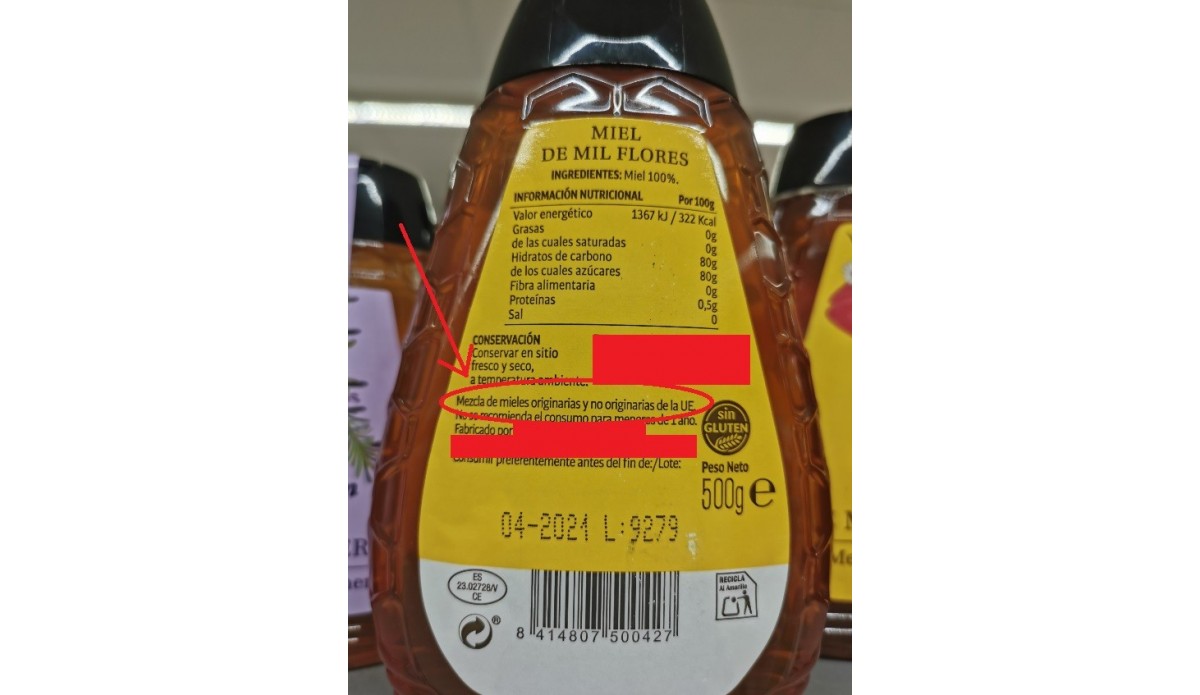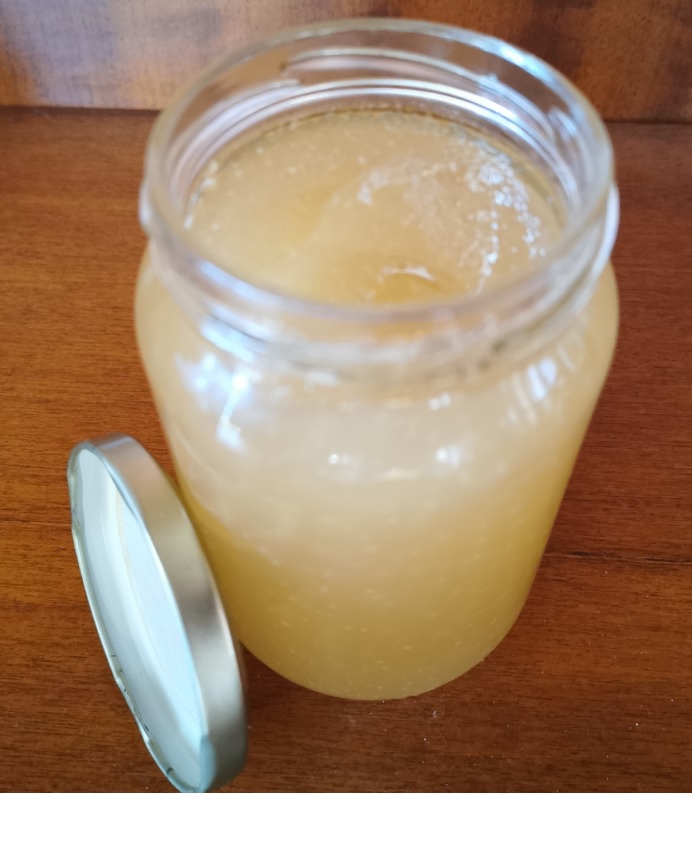“Mix of honey from the EU and honey from the EU”

How to avoid buying honey from which the country of origin or its percentage is unknown
Honey is a product of great importance for the economy of each country. Not only for the product itself, but also for those who produce it: bees (with a very positive impact in many economic areas thanks to their pollination work).
The approved text of the European Parliament in 2019 that deals with “The perspectives and challenges of the beekeeping sector in the European Union” talk about the economic value generated by bees (pollination, bee products such as honey, wax, apitourism, etc.) and some of its challenges (such as the diseases that bees have to face).
We have been struck by some important points of this report (http://www.europarl.europa.eu/doceo/document/TA-8-2018-0057_EN.pdf?redirect :)
- - The European Union imports approximately 40% of the honey it uses per year.
- - In 2015, imported honey was 2.3 times cheaper than honey produced within the European Union.
- - The European Union imports about 200,000 tons of honey per year from China, Ukraine, Argentina and Mexico (often these honeys do not meet the standards required in the European Union). Half of the imported honey comes from China.
- - Consumers often believe that they are consuming honey produced in the European Union when they are actually consuming European honey and imported from third countries (much of the imported honey is adulterated).
- - Honey is the third most adulterated product in the world (with all those risks to the health of consumers and the great economic losses caused to the beekeeping sector).
- - 20% of the honey samples taken at the importers' facilities did not meet the composition criteria of Directive 2001/110 / EC and 14% of the samples had added sugar.
- - Importing low-cost adulterated honey makes natural honey prices fall in European producing countries, harming the entire beekeeping industry in general.
- - Article 2, paragraph 4, letter a) paragraph 2 of Directive 2014/63 / EU provides that, when honey comes from more than one Member State or from a third country, the mandatory mention of countries may be substituted of origin by the fats: “mixture of honey from the EU”, “mixture of honey not coming from the EU”, “mixture of honey coming from the EU and honey not coming from the EU”. This, without a doubt, can be used to hide the true origin of the countries from which honey is imported.

It is precisely this last point that can give rise to a legal situation but (in our opinion) totally unfair to the consumer.
What happens if we buy a honey pot that says “mixture of honey from the EU and non-EU honey” and it was actually 99% honey from China and 1% honey from Spain?
How would you feel as a consumer? A word could be "unprotected."
And how would you feel as a beekeeper, having to compete with "cheaper" manufacturing price honeys while you produce quality honeys that have a much higher manufacturing cost than these other honeys? A word could be “frustrated and helpless in the face of such a situation”, since we do not consider this lack of information to be fair when it comes to labeling honey.
As a consumer, what can I do?
Then buy honey in specialty stores or directly to the beekeeper. Avoid buying honey on whose labels is the famous phrase "mixture of honey from the EU and honey from the EU." As we have already said, it may be the case that it is even 99% of Chinese honey and 1% of Spanish honey. In addition, there have been cases in which Chinese honey has been adulterated with rice syrups and other sources. (The problem of adulteration of honey will be discussed in another blog post).
As a beekeeper, what can I do?
If you are in Spain, as a beekeeper you have the right to sell your own honey through direct sales: directly to the final consumer both in the same apiary or apiary (beekeeping) and in markets and fairs on the dates indicated (complying with local regulations ). It is also possible to sell honey to small establishments that sell food directly to the final consumer. To do this, you must consult the regulations of each Autonomous Community of the country and comply with the established regulations.

In another blog post we will discuss the steps to follow to make direct sales of honey. If you need information about the steps to follow to make direct sales, you can write an email to info@mundoabejas.com
Mundoabejas.com team







Comments
No comment at this time!
Leave your comment